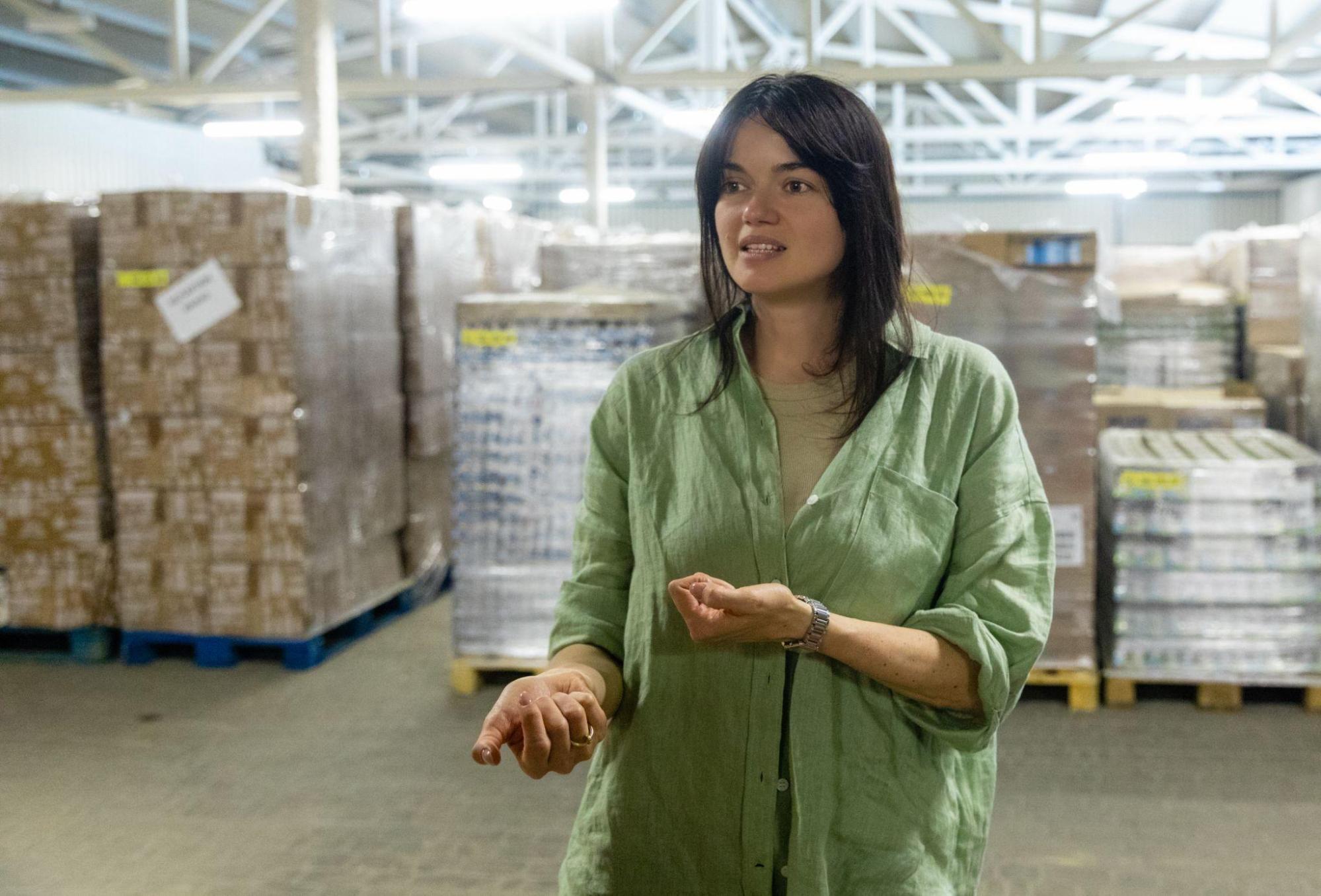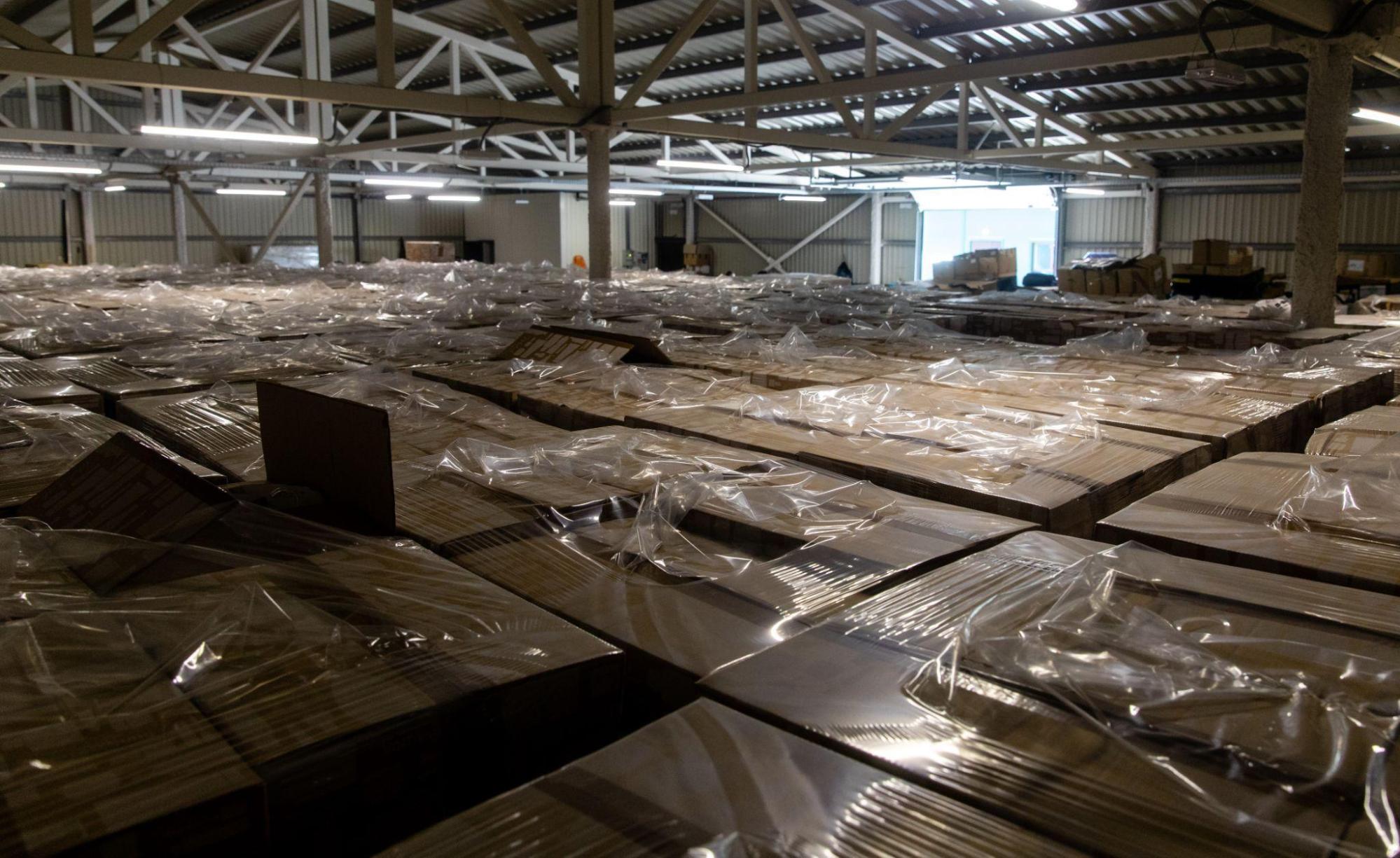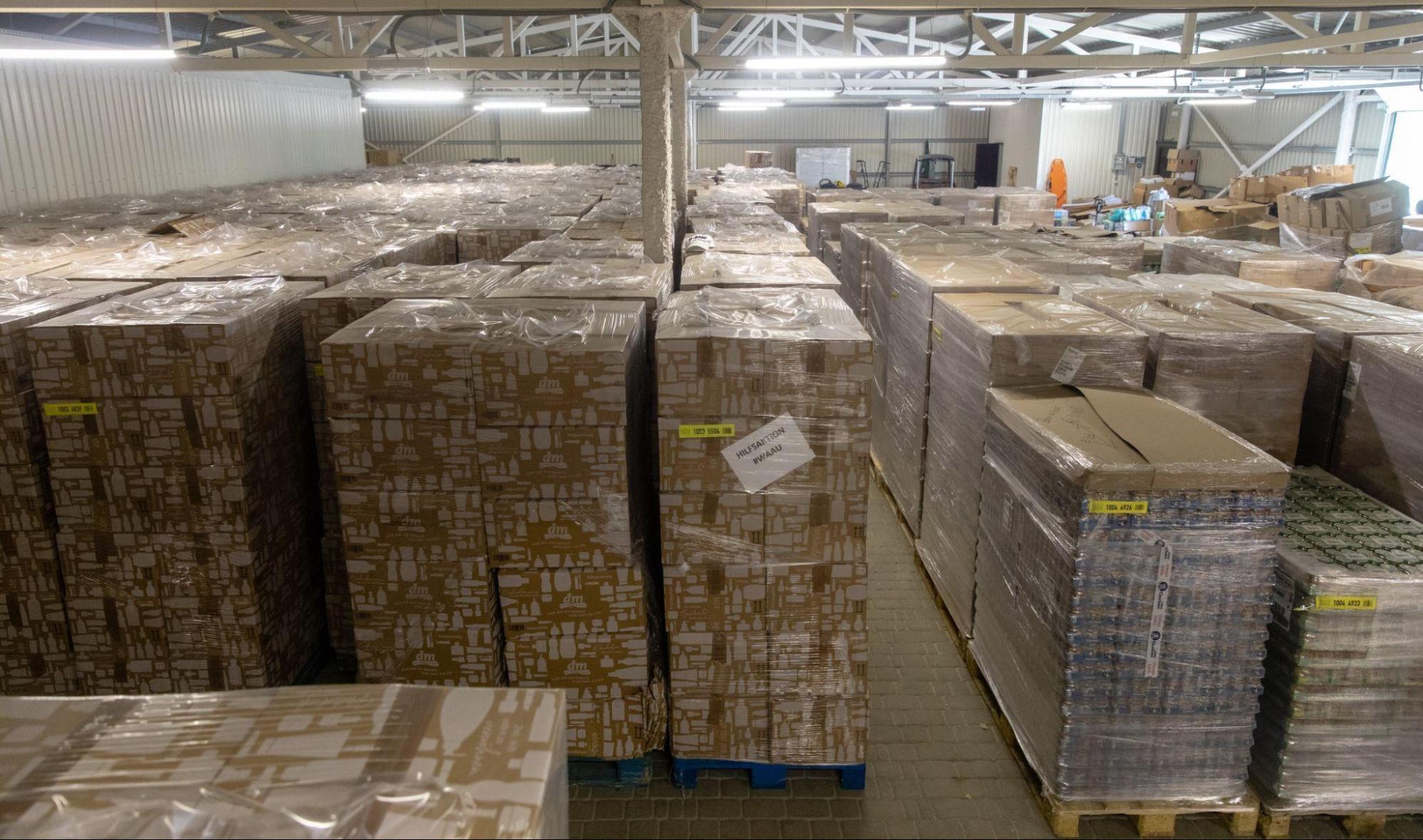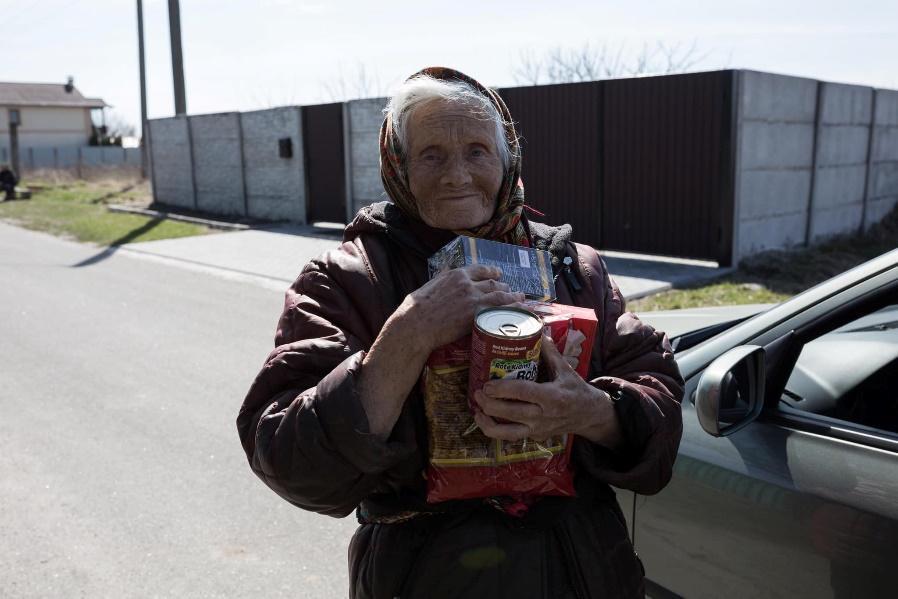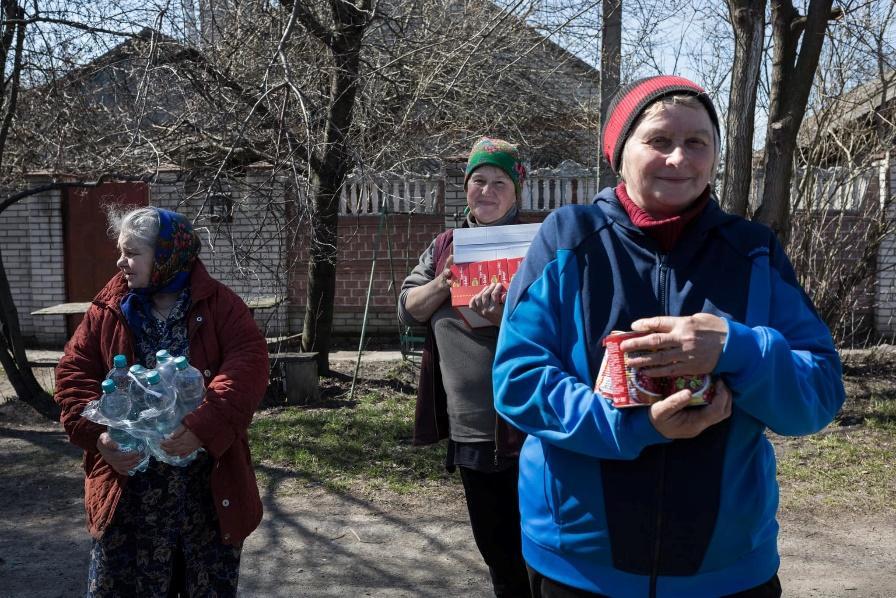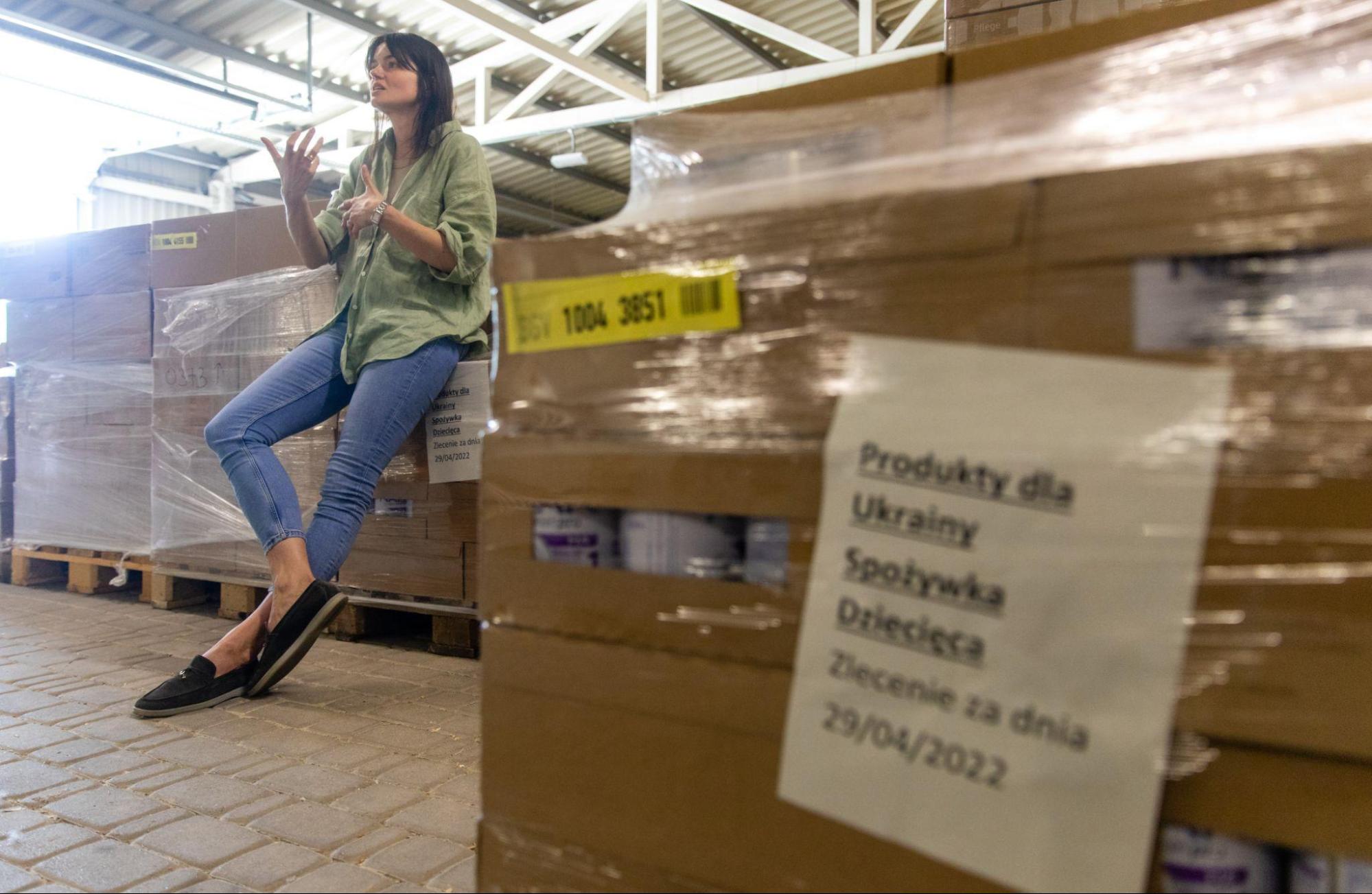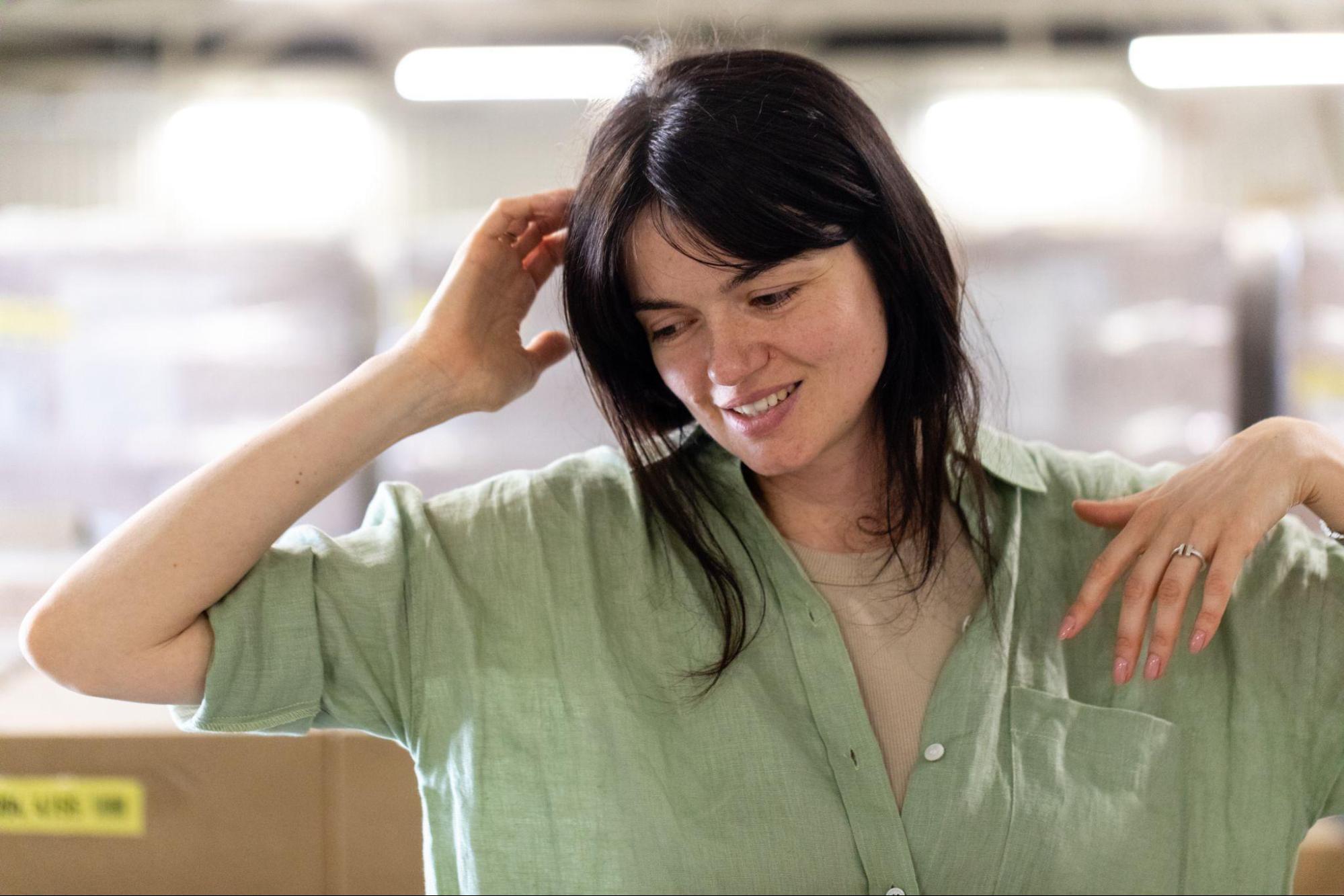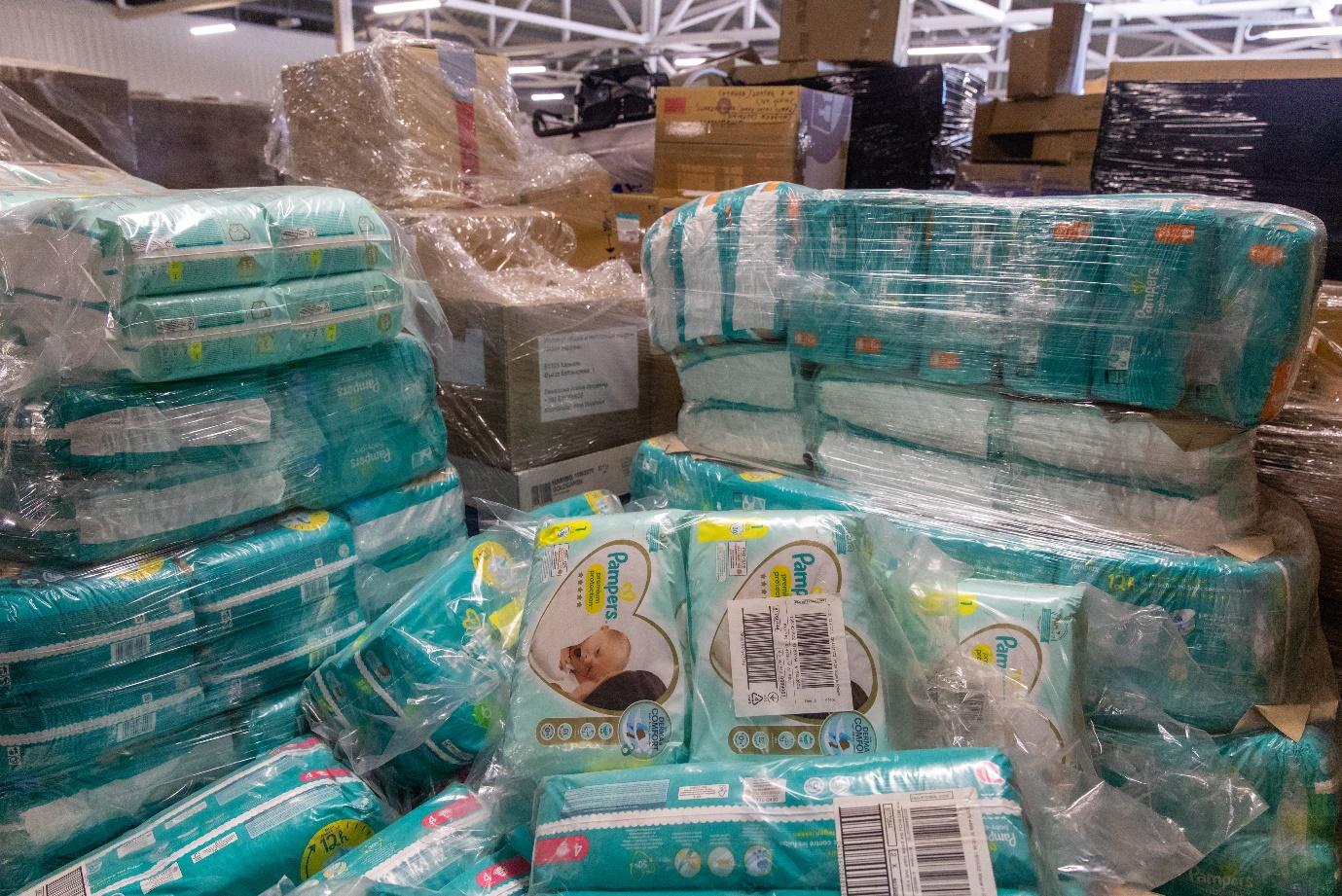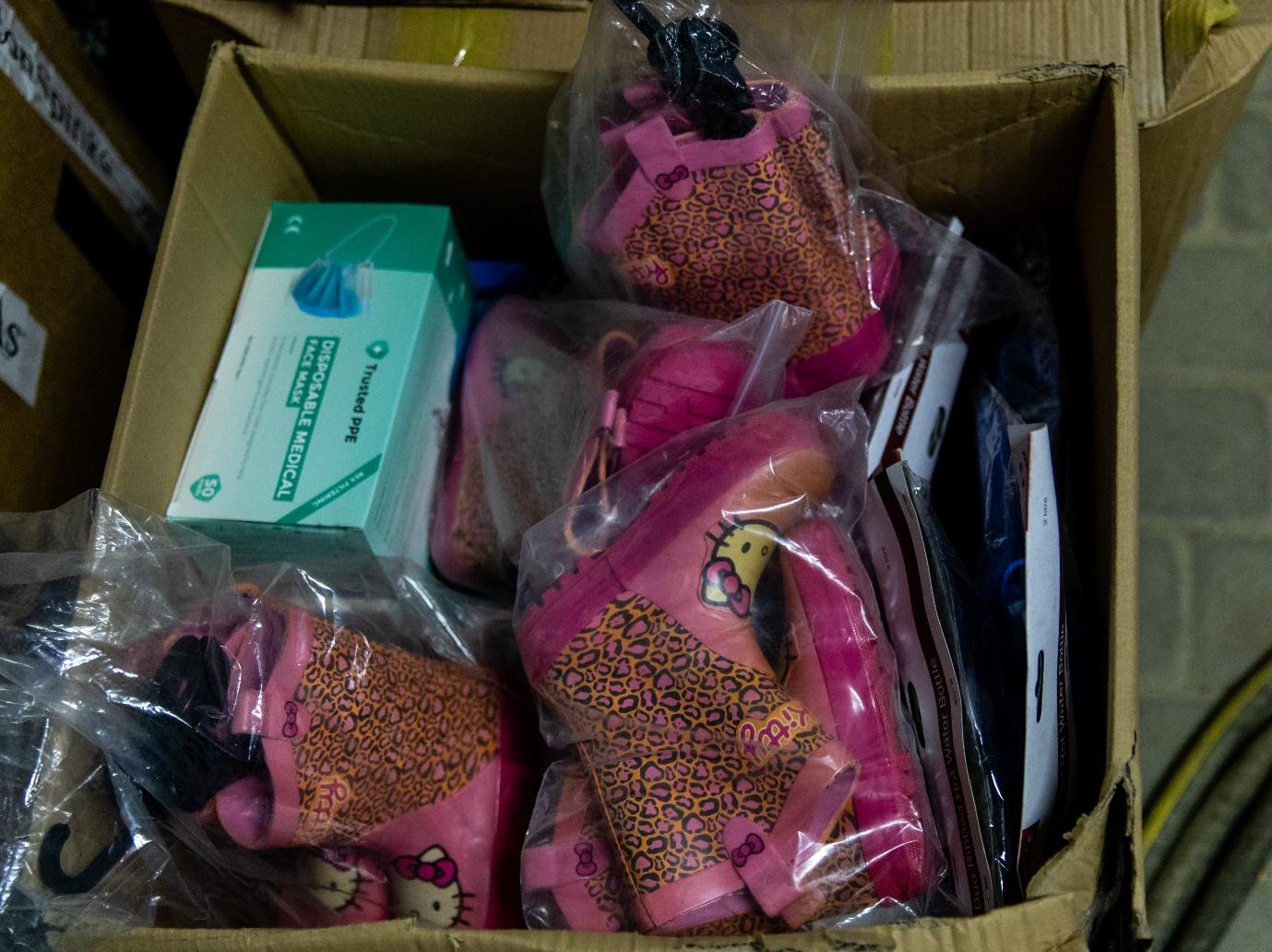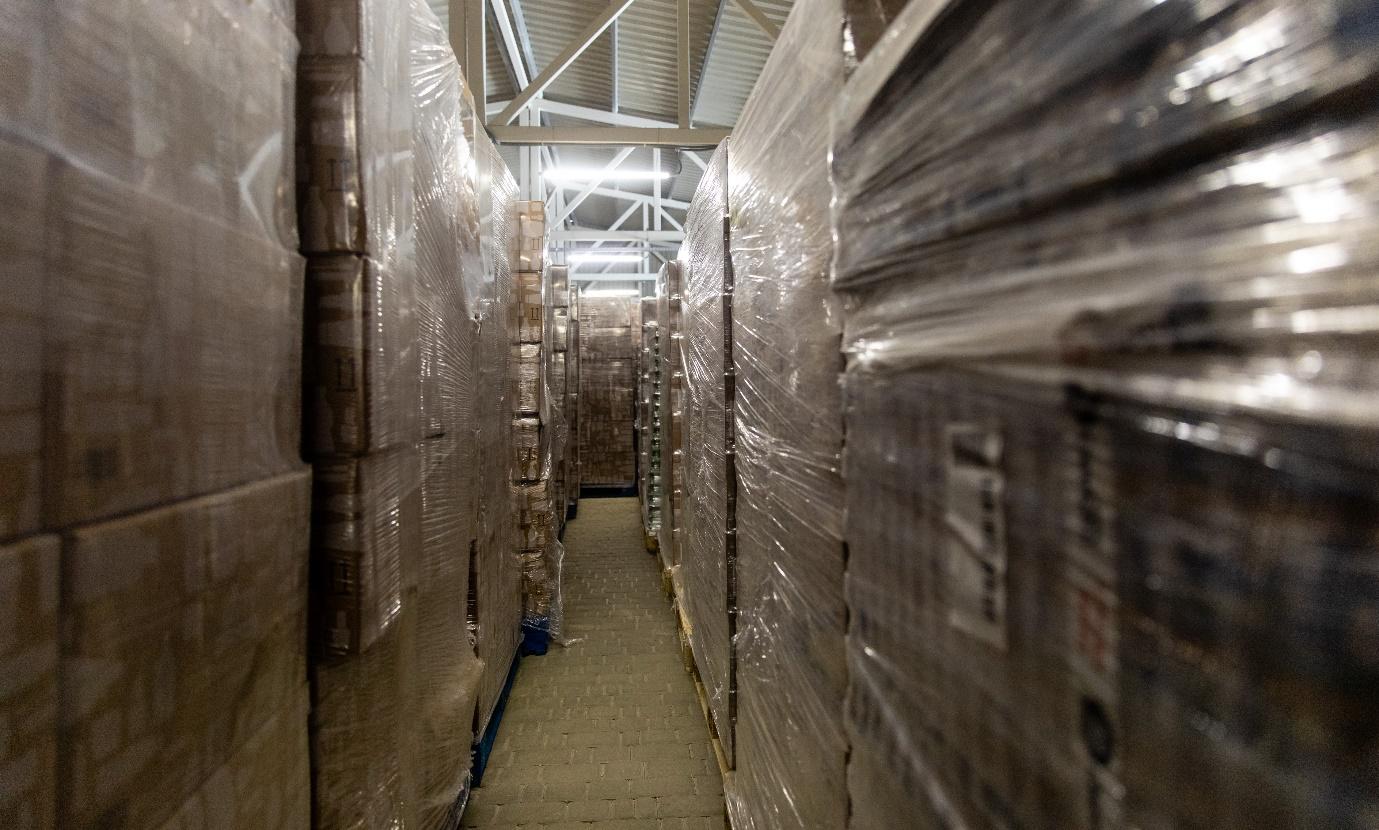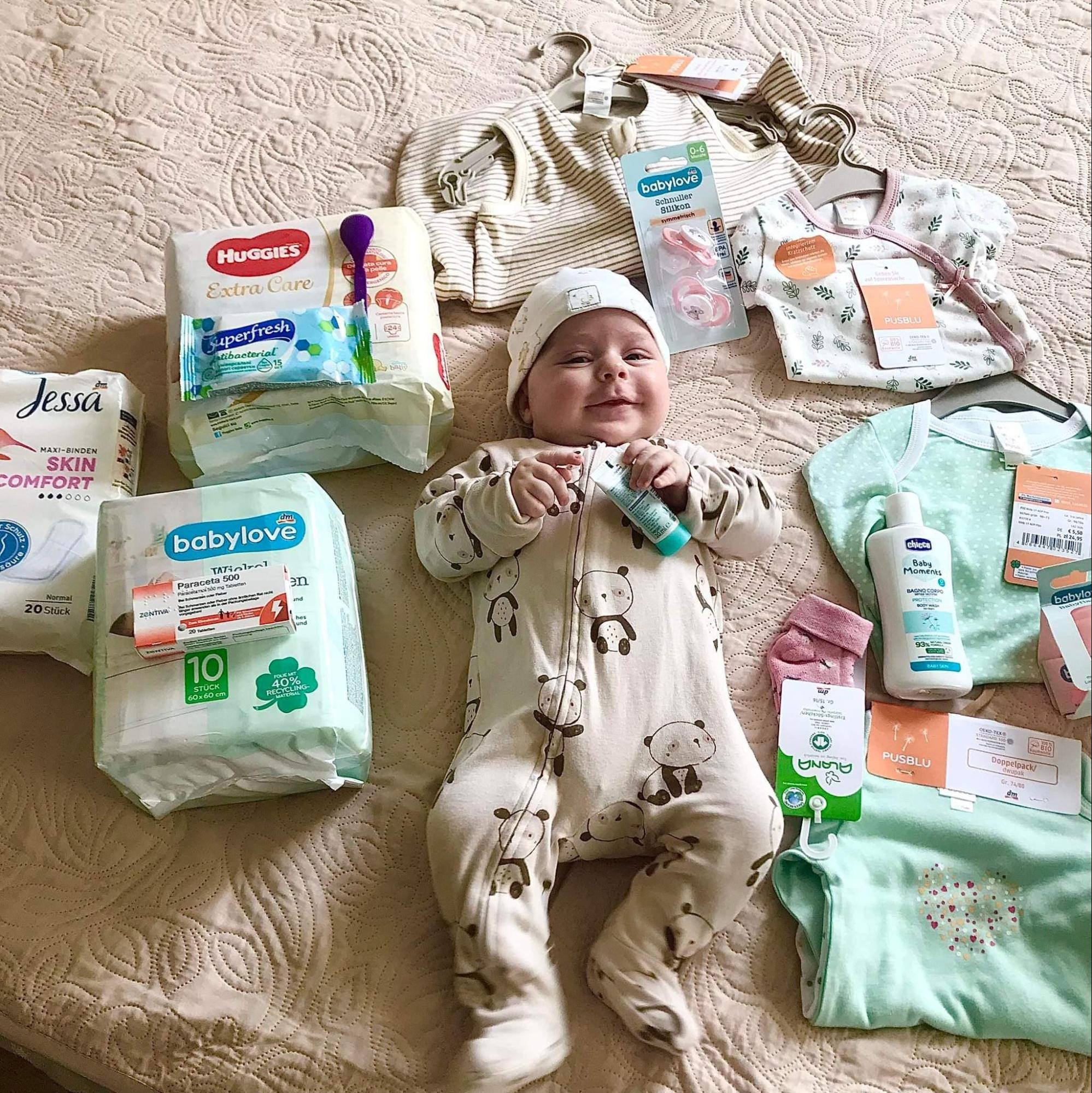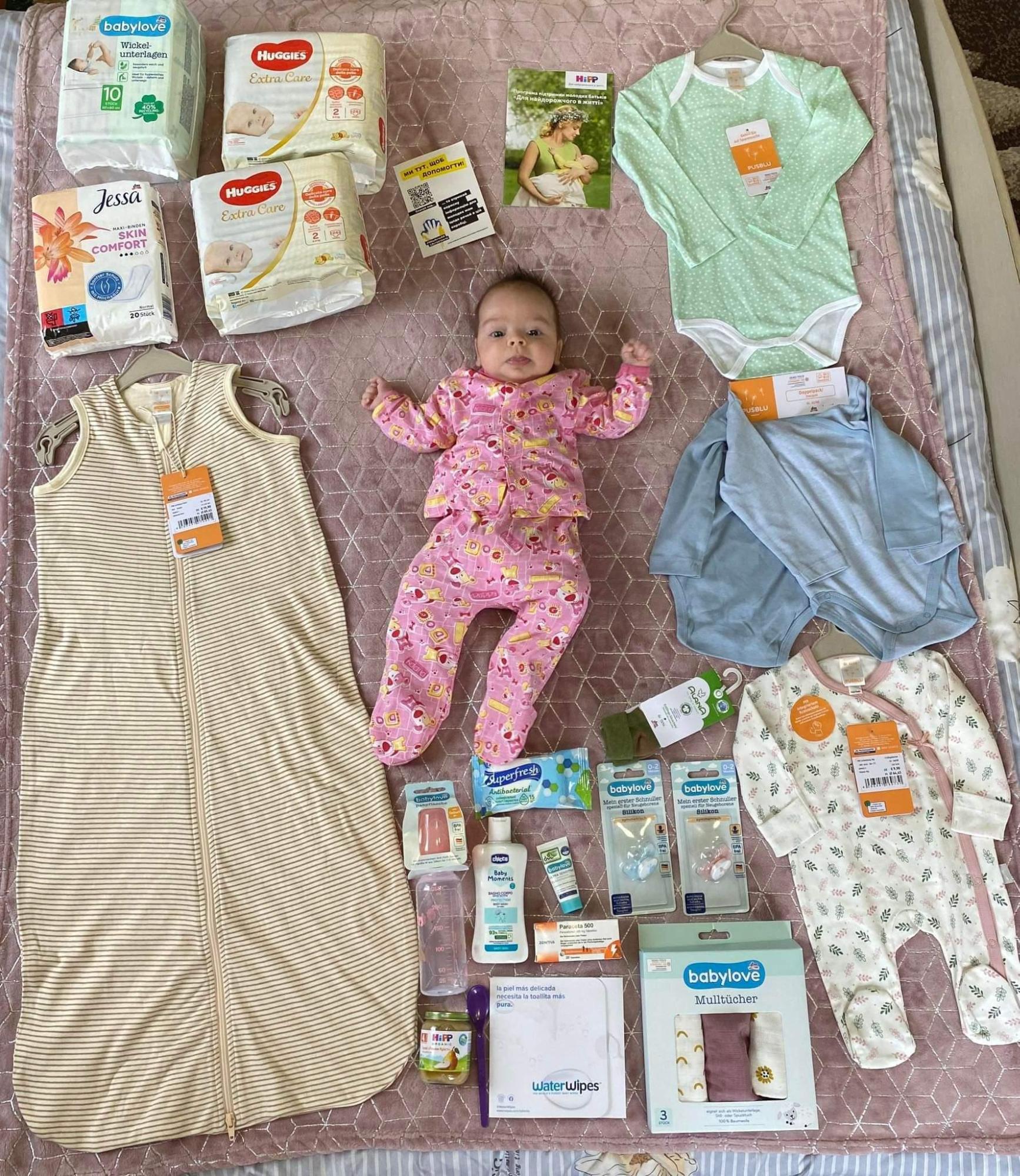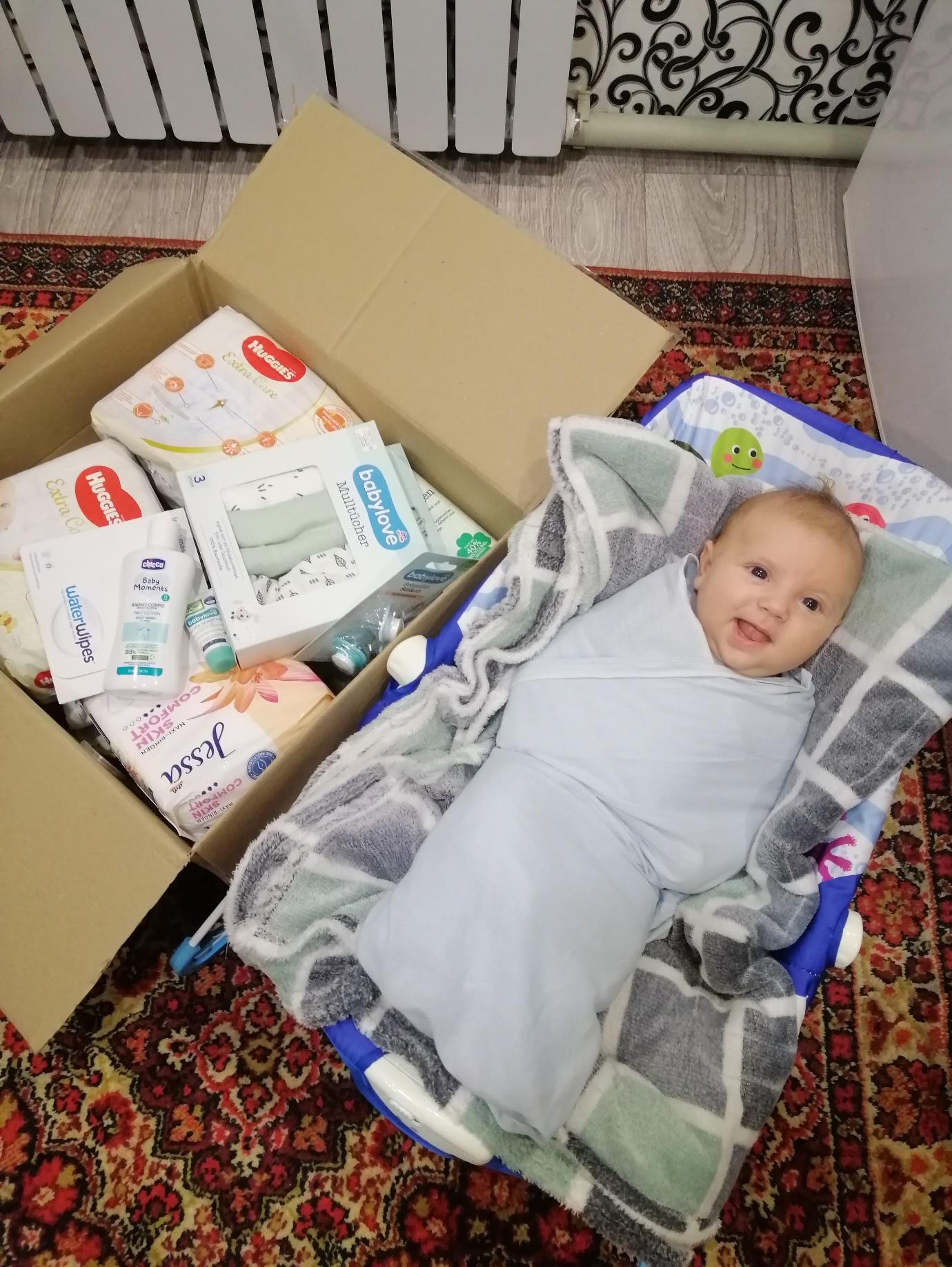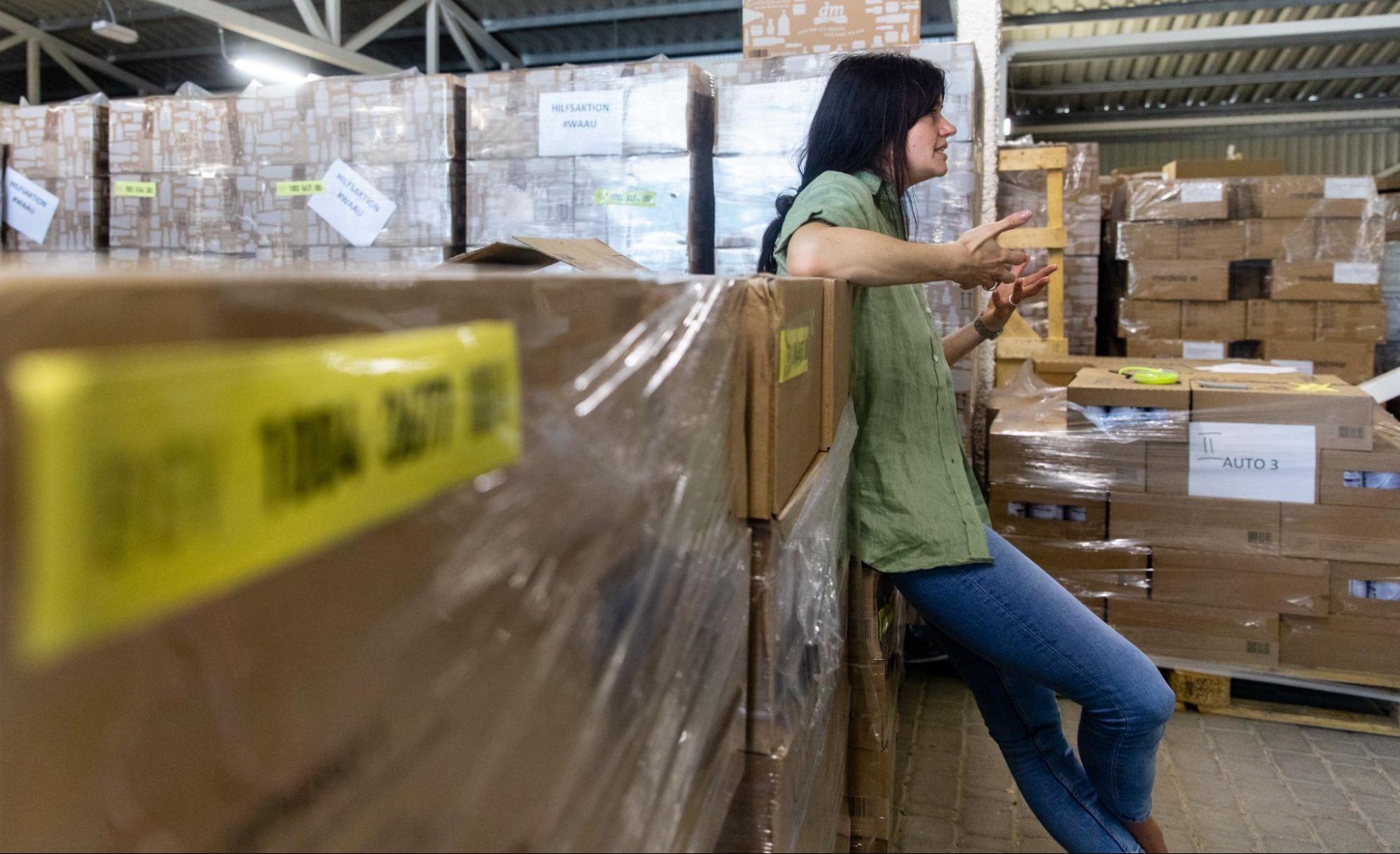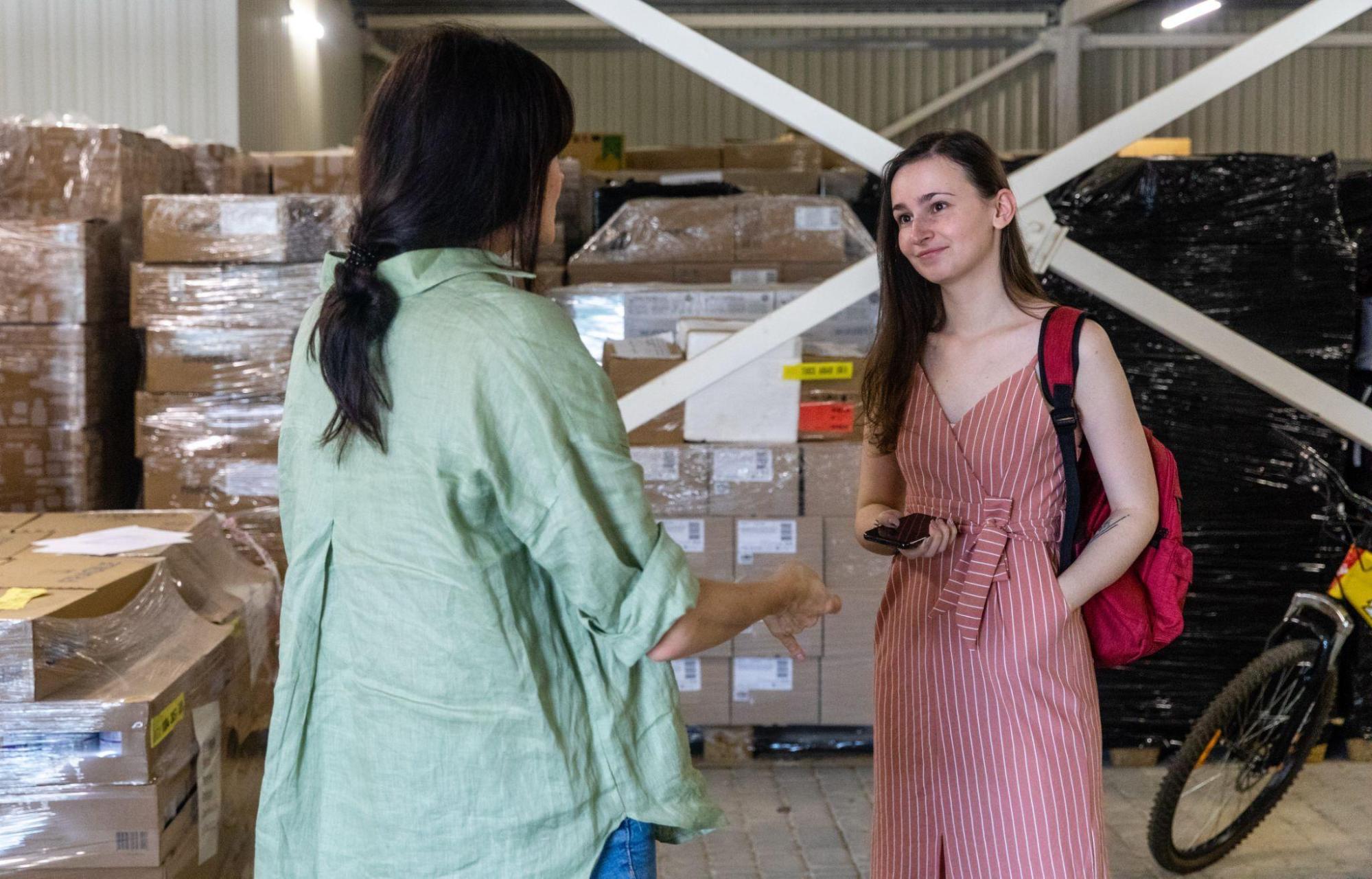
Rubryka explains how the charity fund, created by a large business team of employees, functions, how the entire company suddenly becomes volunteers, how children's drawings from Ukraine are changing Europe, how supporting children matters, and who the BGV Charity Fund is, in a conversation with its head, Nadia Stechyshyn.
About birds, wonder women, and lawyers unloading trucks
The vast warehouse, lined with boxes, is bustling with work. From time to time, worried guys fly inside, count and move huge packages, write something down, and call someone.
This is a warehouse of a charitable foundation born from a large investment company. And it is here that we meet its manager, Nadia Stechyshyn. As soon as we ask about the team, she pulls out her phone and starts showing a photo:
"This is our financier and the personal assistant of the company founder unloading the truck, " Nadia shows the next photo. "And this is our lawyer Yulia, a young woman who sorts humanitarian aid in her ninth month of pregnancy, organizes logistics, and so on…" Nadia says and lists various names and positions.
"Our team includes more than 20 highly qualified specialists—lawyers, financiers, logisticians, and coordinators who perfectly manage all processes to organize a wide variety of humanitarian projects. The basis of our charity fund team is colleagues and employees of the investment company BGV Group Management.
We have worked with these people for many years in the framework of investment activities, whom we trust. So it was not scary to stand side by side in a warehouse or an office within the humanitarian projects," says Nadia.
She says it is impossible to explain what started the foundation's activities. First was business. Then it was February 24. And life around began to unfold differently. Since then, Hennadii Butkevych's Charity Fund has been uniting large companies from all over Europe to deliver humanitarian aid to Ukrainians.
"Miscalculations in reporting or logistics are unacceptable when you grow from a team of enthusiastic volunteers into a legal entity with international partners. Therefore, we are cautious about the order in the warehouse and with the documents. One of the first steps was automating warehouse accounting of humanitarian aid. Today, it saves a lot of time for our team and significantly simplifies reporting processes. It is vital for us because, at the beginning of November, our Fund has already delivered 280 vans with humanitarian aid to Ukraine, which is 5,600 tons of goods and products," Nadia shares.
The head of the charity organization explains that the fund's existence is a joint decision of the entire company. After all, its entire team is the employees of the BGV investment group, who, as Nadiia says, "sit on two chairs," combining their main work with volunteering.
In each of her answers, Nadia returns again and again to mentioning the team—about Ania from Bucha, who managed to get out of the occupation and was already working in a warehouse on the second day; about geologist Michal from Poland, who is now negotiating with Polish partners; about Katia from Kharkiv, who sorts baby food together with her 10-year-old daughter. And once again, she mentions Yulia, who organizes the fund's logistics in the last month of pregnancy and personally packs kits for new mothers and their babies.
20,000 babies who received help
The BGV Charity Fund assists various vulnerable categories. However, the most significant emphasis in their activities is on mothers with newborns. Together with German donors, the foundation has already collected and delivered 20,000 kits for babies and their mothers. On average, one such set costs 100 euros, significantly saving the family budget. The package includes baby clothes, diapers, baby pads, bottles, binkies, hygiene products for mom and baby, and baby food.
Nadia says such projects please the team the most because by making children's lives better now by providing care, they help make the country's life better later.
"We always have many times more requests for help than opportunities. Hunger and the fear of going without food affects people and creates PTSD. And it can appear not only in those who fought, survived the occupation, or lost their homes. It will also develop in those who have lost their jobs and are no longer sure what they will live on and buy food for tomorrow."
The work of the Charity Fund is complicated by choice of who they should help in the first place. Nadia explains the need to primarily help newborn babies and their mothers:
"We try to help different people, but now the priority is the story of helping women who give birth and their babies. The decision to give birth in a war-torn country requires great courage. Likewise, deciding to drop everything and take the child to a quiet place requires courage because it is imperative to protect it."
"That's why supporting mothers and babies has become a priority area of our fund's work. Since the beginning of the war, together with our partners, we purchased and brought to Ukraine three 20-ton trucks of baby food from Poland. This is approximately 92,500 servings for Ukrainian babies. Later, we distributed the aid in 13 regions. A total of 32 organizations received humanitarian cargo with baby food, including children's hospitals, orphanages, city centers of social services, city and village councils, partner charitable funds, and public organizations that help us deliver food directly to families with children," Nadia recounts.
In addition, BGV Charity Fund has already donated rehabilitation boxes for premature babies and other equipment to perinatal centers. For example, the Kyiv Perinatal Center received specific medical products from the foundation for caring for the tiniest babies.
"At the beginning of March, we brought a truckload of medicines and goods for the National Children's Specialized Hospital Okhmatdit. In particular, the cargo contained rare medications that needed to be delivered as quickly as possible from Austria to the patients of a medical facility in Kyiv.
In August, our team handed over medical aid of UAH 300,000 to the Kyiv Regional Perinatal Center, which saves the smallest Ukrainians.
Over the past few months, our partners and I also managed to deliver batches of baby food and hygiene products to several maternity homes, perinatal centers, and local authorities throughout Ukraine—in Kryvyi Rih, Dnipro, Zaporizhzhia, Kyiv, Berdychiv, Mykolaiv, Kharkiv, Uzhhorod, Khmelnytskyi, Vinnytsia, Zhytomyr and even, with the efforts of the team and partners, to deliver aid to Kherson, which was still occupied at the time."
And while the foundation helps the youngest, the older children manage to support the foundation. Thanks to children's drawings, BGV managed to collect 115,000 hryvnias.
The fund organized a charity fair in Prague, where 508 pictures of small Ukrainians were presented for donations. The fund sent the collected money to humanitarian aid for the children of Ukraine. Nadia says that the first day of the fair was on her birthday and was almost the best celebration.
"If you think that the problems with logistics or distribution of humanitarian aid are the most difficult, then no. As part of the Czech project, we needed to collect more than 1000 drawings for the fair in a few days. We then turned to several volunteer and children's centers. We were told that it was impossible. But nothing is impossible for Ukrainian philanthropists. In three days, 1,300 children's drawings were already in my car in Prague! I come from Khmelnytskyi, and the mayor Oleksandr Semchyshyn helped us a lot at that time. We quickly collected a large number of incredible children's works in Khmelnytskyi itself. Next, we involved children's art schools in Lviv and Dnipro. And then, we sent the required number of drawings by buses, trains, and BlaBla cars. To summarize: charity fund projects are often about the ability to get out of the way, find a non-standard solution, and make it in time for yesterday.
As part of these two charity projects in the Czech Republic and London, we exchanged children's drawings for donations. We managed to collect about 165,000 hryvnias to help children. Still, we collected much more hearts and caring people, whose attention is now focused on Ukraine," Nadia shares and notes that in war conditions, funds must work quickly because every delay has a great price.
"Call Maria, say 'hetman,' and she'll help"
In addition to working at the foundation, the company still works on the business. Therefore, specific tasks must be performed from morning until late at night. Like other team members, Nadia spends a lot of time on the road—making arrangements, viewing, checking, delivering, picking up, reporting, etc. The list never ends.
Only at the beginning of summer did the BGV Charity Fund team have a weekend. Before that, the first three months of the large-scale war were non-stop. Now, the head of the foundation says, everyone has understood that it is necessary to switch from the sprint format to the marathon format and prepare for the fact that the war, and therefore the struggle, will last a long time.
"To transport cargo in the first weeks of a full-scale war, you sometimes called some unknown carrier and simply believed that this person would deliver. There were even my favorite stories about password words. Call Maria, say 'hetman,' and she'll help. And you just believe this cargo will not get lost on the way, and the person will not turn off the phone. We transported the first humanitarian cargo with police convoys because there were cases when the car entered the village but didn't leave the village.
We all operate in a very high emotional tension and stress mode. We stressed before when we were doing business. But now it's not about damages or fines. Now it's about human life. And when you worry that somewhere in Poland there are documents for transporting 600 bulletproof vests, you understand that the lives of 600 defenders depend on it," says Nadia.
Hennadii Butkevych's Fund has already implemented several projects in cooperation with Nova Poshta, Vodafone Ukraine, Rossmann, Lidl, Deutsche Bahn, Billa, Lufthansa, dm-drogerie markt, and other companies. City councils, hospitals, schools, children's homes, perinatal centers, and those who need personal support regularly receive food kits, baby boxes, medicines, and other assistance. Business in a European country is a socially responsible business. And BGV is trying to meet this criterion.
"One of today's large-scale projects is restoring and making inclusive a music school in Bucha together with partners from the help alliance from the Lufthansa Group and #WeAreAllUkrainians. We are proud! We want to help the young generation of Ukrainians as much as possible to become those citizens who will restart their country.
It is important to us that they have access to quality education, nutrition, creativity, and care. All this should build trust in the world. That is why the projects we do for children appeal to us the most. Yes, having a violin and playing is not the first necessity. But I believe that specifically for a child, this is a great investment in the future development and inner world, from which worthy citizens grow up," Nadia explains, and then gets distracted by a phone call. It's time to negotiate again, check, report, and, of course, help.
Newsletter
Digest of the most interesting news: just about the main thing




